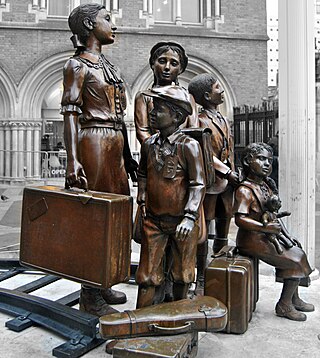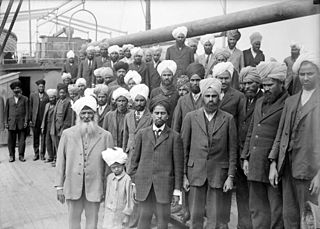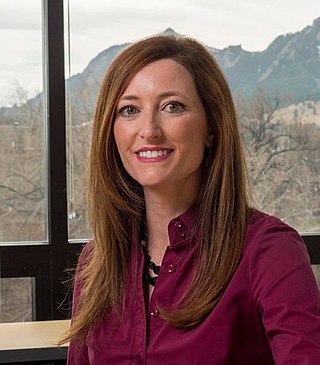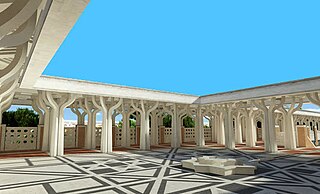
The Council on American–Islamic Relations (CAIR) is a Muslim civil rights and advocacy group. It is headquartered on Capitol Hill in Washington, D.C., with regional offices nationwide. Through civil rights actions, media relations, civic engagement, and education, CAIR promotes social, legal and political activism among Muslims in America.
Islamophobia is the fear of, hatred of, or prejudice against the religion of Islam or Muslims in general, especially when seen as a geopolitical force or a source of terrorism.

The September 11 attacks transformed the first term of President George W. Bush and led to what he has called the war on terror. The accuracy of describing it as a "war" and its political motivations and consequences are the topic of strenuous debate. The U.S. government increased military operations, economic measures, and political pressure on groups that it accused of being terrorists, as well as increasing pressure on the governments and countries which were accused of sheltering them. October 2001 saw the first military action initiated by the US. Under this policy, NATO invaded Afghanistan to remove the Taliban regime and capture al-Qaeda forces.
A backlash is a strong adverse reaction to an idea, action, or object. It is usually a reflection of a normative resentment rather than a denial of its existence. In Western identitarian political discourse, the term is commonly applied to instances of bias and discrimination against marginalized groups. In this form of discourse, backlash can be explained as the response- or counter reaction- to efforts of social progress made by a group to gain access to rights.
Criticism of the war on terror addresses the morals, ethics, efficiency, economics, as well as other issues surrounding the war on terror. It also touches upon criticism against the phrase itself, which was branded as a misnomer. The notion of a "war" against "terrorism" has proven highly contentious, with critics charging that participating governments exploited it to pursue long-standing policy/military objectives, reduce civil liberties, and infringe upon human rights. It is argued by critics that the term war is not appropriate in this context, since there is no identifiable enemy and that it is unlikely international terrorism can be brought to an end by military means.
Racism has been reflected in discriminatory laws, practices, and actions at various times in the history of the United States against racial or ethnic groups. Throughout American history, white Americans have generally enjoyed legally or socially sanctioned privileges and rights, which have been denied to members of various ethnic or minority groups at various times. European Americans have enjoyed advantages in matters of education, immigration, voting rights, citizenship, land acquisition, and criminal procedure.
Discrimination & National Security Initiative (DNSI) is a research organization affiliated with the Pluralism Project, a Harvard University project that studies religious diversity in the United States.
Employment discrimination is a form of illegal discrimination in the workplace based on legally protected characteristics. In the U.S., federal anti-discrimination law prohibits discrimination by employers against employees based on age, race, gender, sex, religion, national origin, and physical or mental disability. State and local laws often protect additional characteristics such as marital status, veteran status and caregiver/familial status. Earnings differentials or occupational differentiation—where differences in pay come from differences in qualifications or responsibilities—should not be confused with employment discrimination. Discrimination can be intended and involve disparate treatment of a group or be unintended, yet create disparate impact for a group.

The sociology of immigration involves the sociological analysis of immigration, particularly with respect to race and ethnicity, social structure, and political policy. Important concepts include assimilation, enculturation, marginalization, multiculturalism, postcolonialism, transnationalism and social cohesion.
Stereotypes of Arabs and Muslims in the United States have been presented in various forms by the mass media in the American culture. Stereotypical representations of Arabs are often manifested in a society's media, literature, theater and other creative expressions. These representations, which have been historically and predominantly negative, have adverse repercussions for Arab Americans and Muslims in daily interactions and in current events. In American textbooks, which theoretically should be less-creative expressions, similar negative and inaccurate stereotypes are also found for Arabs and Muslims.

Stereotypes of South Asians are broadly believed impressions about individuals of South Asian origin that are often inconsistent with reality. While the impressions are wrongly presumed to be universally true for all people of South Asian origin, these stereotypes adversely affect the South Asians as well as the acculturation process.

The sociology of race and ethnic relations is the study of social, political, and economic relations between races and ethnicities at all levels of society. This area encompasses the study of systemic racism, like residential segregation and other complex social processes between different racial and ethnic groups.
Anti–Middle Eastern sentiment is feelings and expression of hostility, hatred, discrimination, or prejudice towards the Middle East and its culture, and towards persons based on their association with the Middle East and Middle Eastern culture. This is different from Islamophobia; prejudice and hatred towards Muslims in general.

American Muslims often face Islamophobia and racialization due to stereotypes and generalizations ascribed to them. Due to this, Islamophobia is both a product of and a contributor to the United States' racial ideology, which is founded on socially constructed categories of profiled features, or how people seem.
Islamophobia in Australia is highly speculative and affective distrust and hostility towards Muslims, Islam, and those perceived as following the religion. This social aversion and bias is often facilitated and perpetuated in the media through the stereotyping of Muslims as violent and uncivilised. Various Australian politicians and political commentators have capitalised on these negative stereotypes and this has contributed to the marginalisation, discrimination and exclusion of the Muslim community.

Lori Peek is a professor of Sociology at University of Colorado at Boulder and director of the Natural Hazards Center. Peek has received many awards for her scholarship, her career in teaching, and her service to the discipline of sociology and broader hazards and disaster field. On April 20, 2021 President Joe Biden nominated Peek to be a Member of Board of Directors of the National Institute of Building Sciences, subject to the advice and consent of the Senate.
Robert Emerson Bartholomew is an American medical sociologist, journalist and author living in New Zealand. He is an Honorary Senior Lecturer in the Department of Psychological Medicine at the University of Auckland in New Zealand. In addition to publishing more than 60 academic papers, he has written or co-written 16 popular science and skeptical non-fiction books. He writes for several newspapers and journals on sociological and fringe science topics, including Psychology Today, Skeptical Inquirer, and British magazines The Skeptic and Fortean Times.
Arabs are portrayed in film as film characters in both Arab films as well as non-Arab films, and both Arabs and non-Arabs take the role of an Arab. These portrayals often depict an ethnocentric perception of Arabs rather than an authentic and realistic depiction of Arabic cultures, religions, dialects, as well as customs and traditions. Common characteristics that are implemented in the role of Arab characters include speaking in a heavy accent, being hostile and vicious, and are in the context of terrorism. Key issues that have been explored in these portrayals include how Arabs are identified in mainstream Hollywood film, how Arabs self-represent themselves in their own film, with examples from Egyptian cinema, Palestinian cinema, as well as Syrian cinema. This article will also cover the emphasis on Islamophobia and its impacts on film. There has also been the portrayal of Arab women in film, the portrayal of Arabs post 9/11, the portrayal of Arabs in silent film, and positive portrayals and negative portrayals of Arabs. Lastly, the United States efforts to avoid the stereotyping of Muslims/Arabs and shifting the focus onto a positive outlook.
Islamophobia in France holds a particularly political significance since France has the largest proportion of Muslims in the Western world, primarily due to the migration from Maghrebi, West African, and Middle Eastern countries. The existence of discrimination against Muslims is reported by the media in the Muslim world and by the perceived segregation and alienation of Muslims within the French community. The belief that there is an anti-Muslim climate in France is heavily criticised by some members of the French Muslim community who terms it an 'exaggeration'.

Islamophobia is characterized by a hatred against the religion of Islam and those perceived to be following the religion, typically fueled by fear and hatred and sustained through the evolving stereotype of the Muslim identity. It has become increasingly common and widespread throughout the world, in particular since the September 11 attacks in the United States, however it existed in society before this. In Europe, there has been an increase in cultural tensions between national majorities and marginalized Muslim countries, as shown by the results of the 2009 elections in the European Parliament with a large vote toward anti-immigration. Within Italy, there is a large Islamic presence of approximately 1.25 million people, stemming from the widespread migration and settlement that began in the 1970s, in particular from North Africa. The Islamic population of Italy increasingly faces challenges when it comes to their position in society, with the increasing cultural hostility that stems from the growing presence of Islamophobia. Islamophobia has been present within Italy for many years; for example, in the 1920s, Muslims were not permitted to settle in the country due to their religion being viewed as "against common morality." The intensity of Islamophobia in Italy is enhanced by the historical religious structure of the state – which is heavily based on the Catholic Church.








